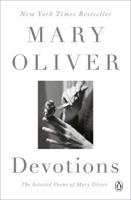Publisher's Synopsis
Byron vaguely modeled his career after those of Wallace Stevens and William Carlos Williams, though in a quite different profession. Byron worked in advertising and rose to become Director of Communications Worldwide for a global conglomerate based in New York and Paris. He composed ceaselessly and Gypsies of the Unattainable presents the bulk of his work.
Early on, the poet came to think the academic institutionalization of poetry leads only to synthetic homogenization and a diminished, quasi-capitalization of sound and sense, which he thought to have been the case with rare exceptions over the previous five decades. He believed critics and academics alike, unless first artists, must ineluctably categorize and then further compartmentalize any true artistic impulse as they work from outside in, ex post facto, to ensure the presumptive agent's place in the creative process. Their product, the parsing of art for broad consumption, is necessarily parasitic and of no consequence to the life or cost of any artist's original, uncensored work. Pointing out that Schopenhauer similarly stood against the institutionalization of philosophy, Byron often cited Grace Paley's remark about literary criticism. Paley wrote, "The difference between writers and critics is that in order to function in their trade, writers must live in the world, and critics, to survive in the world, must live in literature."










